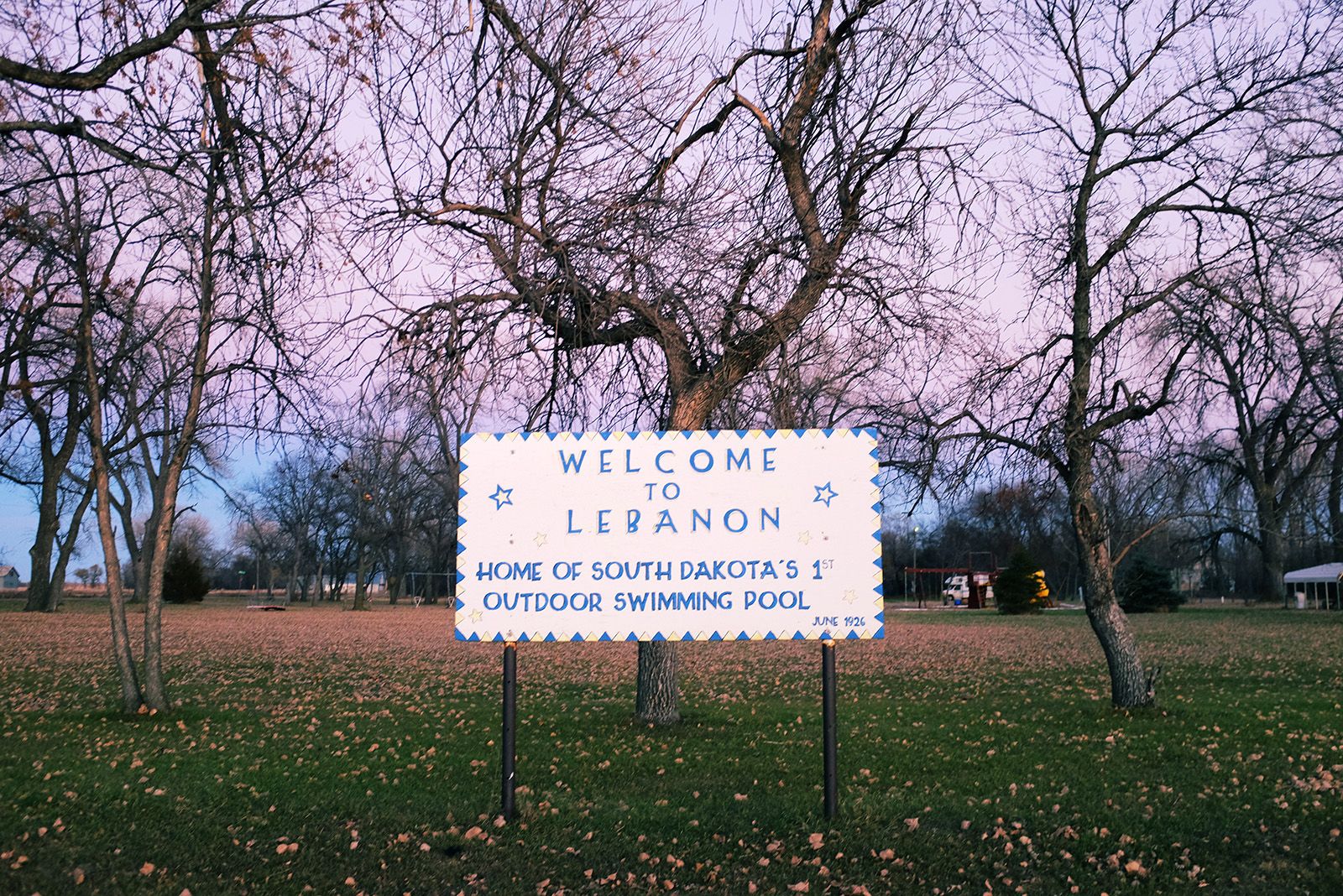
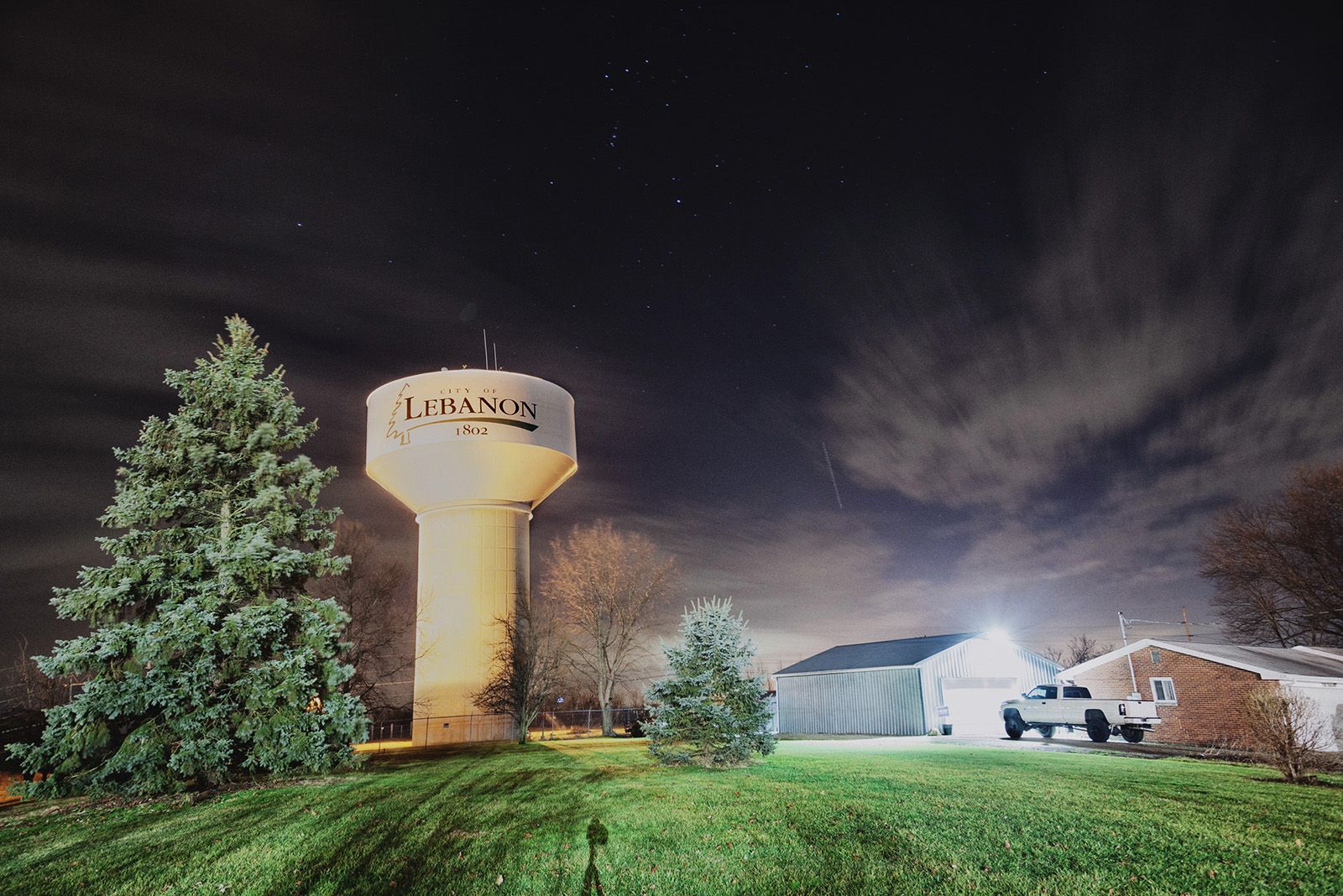
features.foreignpolicy.com
A
decade ago, while studying at business school in San Francisco, Fadi
BouKaram started feeling homesick for the sunbaked hills of his native
Lebanon. He typed “Lebanon” into Google Maps — and was stunned to find
himself looking not at the Middle East, but at Lebanon, Oregon, a mere
nine-hour drive from his apartment. He was puzzled: There was a U.S.
Lebanon? Could there be more?
Another quick search led him to Lebanon, Pennsylvania. Then to Lebanon,
Kentucky. Altogether, he found more than 50 Lebanons in the United
States. The reason, of course, is that the word “Lebanon” appears more than 70 times in the Old Testament. What, BouKaram wondered, if one day he visited all of them?
Ten years later, this germ of an idea had landed him in a police station
in Albuquerque, New Mexico, chasing a mother-daughter meth-dealing team
that had stolen and gutted his rented recreational vehicle, the one he
had slept in for five months, the one that had carried him 17,800 miles
through 37 states, and left him with a better understanding of the
American heartland than nearly all his coastal elite friends. But more
on that later.
BouKaram, now 38, spent much of his childhood in bomb shelters in the
Beirut suburb of Sabtieh at the height of Lebanon’s civil war in the
1980s. The war, combined with the conflict with Israel, left the country
decrepit in every way. BouKaram got his degree in electrical
engineering and soon landed a job. In 2005, he was so close when former
Lebanese Prime Minister Rafik Hariri was assassinated with a car bomb
that his face was cut with glass from the explosion. “I needed a break,”
said BouKaram, who decamped to San Francisco shortly after to study.
After business school, BouKaram returned to the Middle East as a tax
consultant. His job took him from Cairo to Kuwait to Baghdad, often in
an armored car. When in Baghdad, he had to submit a proof of life form
with identification marks of his body in case he were killed. “All this
for taxes?” BouKaram said he thought.
In July 2016, he quit his job and decided to make good on the dream of a
decade before: He would visit all the Lebanons in the United States and
photograph his way through America. His plan was pegged to a
little-known historical event in 1955, when Lebanese President Camille
Chamoun invited
seven representatives from towns called Lebanon in the United States to
see the country. According to BouKaram’s research, they spent two weeks
in Beirut, touring the nation, and were gifted cedar — the national
symbol of Lebanon — saplings to take home and plant in their towns.
BouKaram wanted to see if the seven trees still existed.
The timing was also intentional. He wanted to see America before,
during, and after the 2016 U.S. presidential election, even if that
could be off-putting for a Lebanese-born, San Francisco-educated
“coastal elite.”
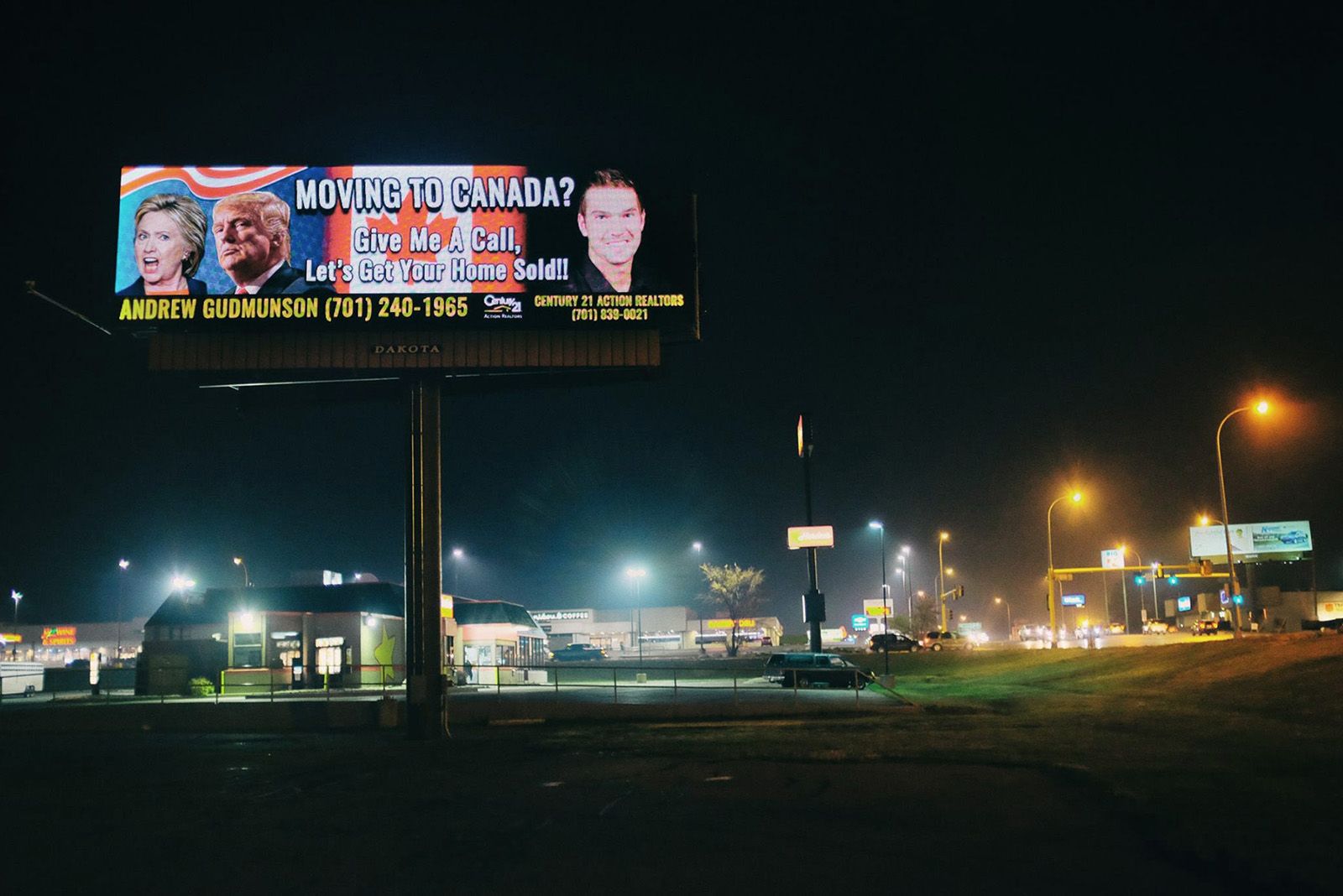
friends grimaced and then warned him to be careful: An Arab man
traveling through Middle America when the Republican nominee wanted to
ban all Muslims from the country? “People told me to wear a huge cross
around my neck to show I wasn’t Muslim,” BouKaram said. (He is Catholic
but skipped religion during his trip. “If they assumed I was Muslim, I
let them assume that because I wanted to see their reaction.”)
“Now is not exactly the best time to be doing a road trip through the
United States,” BouKaram told me in February from a parking lot in
Illinois, where he was resting on his way to Lebanon, Missouri.
What he found as he began his journey in Seattle and snaked through
Montana and North Dakota is a now familiar tale. But for BouKaram, who
had only known America’s coasts, it was a huge culture shock. He saw
closed businesses, shuttered houses, for-sale signs. “Even the Salvation
Army was for sale,” he said. What’s going on here? BouKaram thought.
In all, he photographed 24 and toured 28 Lebanons (his first stop being
the Lebanon, Oregon, he stumbled upon in business school), nearly every
one of which has reliably voted Republican since the turn of the
century. And far from feeling ostracized, BouKaram said he found some of
the nicest people he had ever encountered.
“It got to the point where now I’m starting to feel uncomfortable
sharing some of these stories with my friends because it’s as if I live
in a different country than they’re living in on the coast,” he said.
Ultimately, his work aimed not to express political viewpoints but to
subvert the expectations that come with them. He was not interested in
the inhabitants of red states and blue states but in the “people who are
in the middle,” he said. No, not independents, but those who don’t
subscribe to a “prepackaged ideology.”
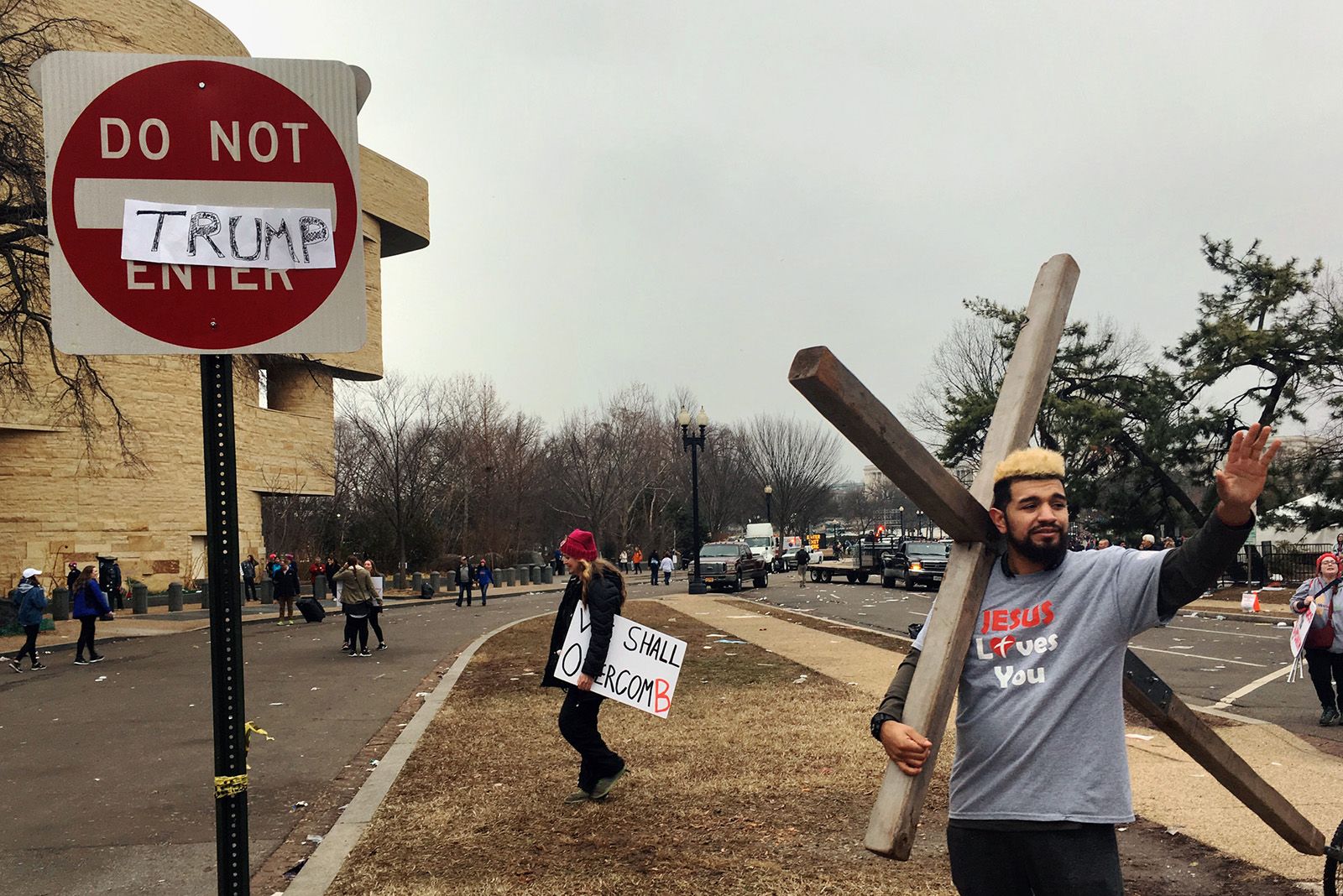
example? When BouKaram rerouted his trip in January to come to
Washington, D.C., for Donald Trump’s inauguration and the Women’s March,
he witnessed a face-off between an anti-abortion, anti-Trump protester
and a pro-Trump, pro-abortion rights atheist. These people, their
refusal to fit the bill, so to speak, “led to a much richer debate,”
BouKaram said.
Back on the road, even the odd scrape had happy endings. One November
evening in McCook, Nebraska, BouKaram was having a beer at a seedy local
bar — “I’m not going to go to a microbrewery. No hipsters, please.” —
when a man approached him and asked him where he was from. Lebanon, he
told him.
“You came all the way from Israel to here? How would you feel if I came
to your town?” the man demanded. The man started shouting at him, and
the bartender had to toss him out. BouKaram was shaken and then stunned
when everyone else at the bar hugged him and apologized.
The next morning, he found a Post-it note from the bartender, who had paid for his drinks, on his windshield.
“Fadi,” she wrote, “There’s a lot of hatred in this world, and I’m sorry
for that.… I hope you meet more good souls than bad on your journey.
Safe travels, Alissa.”
A few bad souls were still out there, of a sort. On March 3, BouKaram
was in an Albuquerque hotel, mapping the route to his final destination,
when his RV was stolen. He was left with the clothes he was wearing,
his computer, and an overnight bag — everything else from a five-month
odyssey was gone.
Police weren’t hopeful; Albuquerque is notorious for crime, especially
auto theft. But 12 hours later, he got a call: They had found his RV and
his belongings. And they had found the women responsible, a mother and
daughter.
BouKaram arrived at the scene and saw a pickup truck full of his bags.
The RV was gutted and had been transformed into a makeshift drug lab.
Tubes of lipstick and what BouKaram described as “really questionable
sex toys” littered the empty space. All his photography equipment had
been inventoried, with hopeful appraisals for what it might fetch.
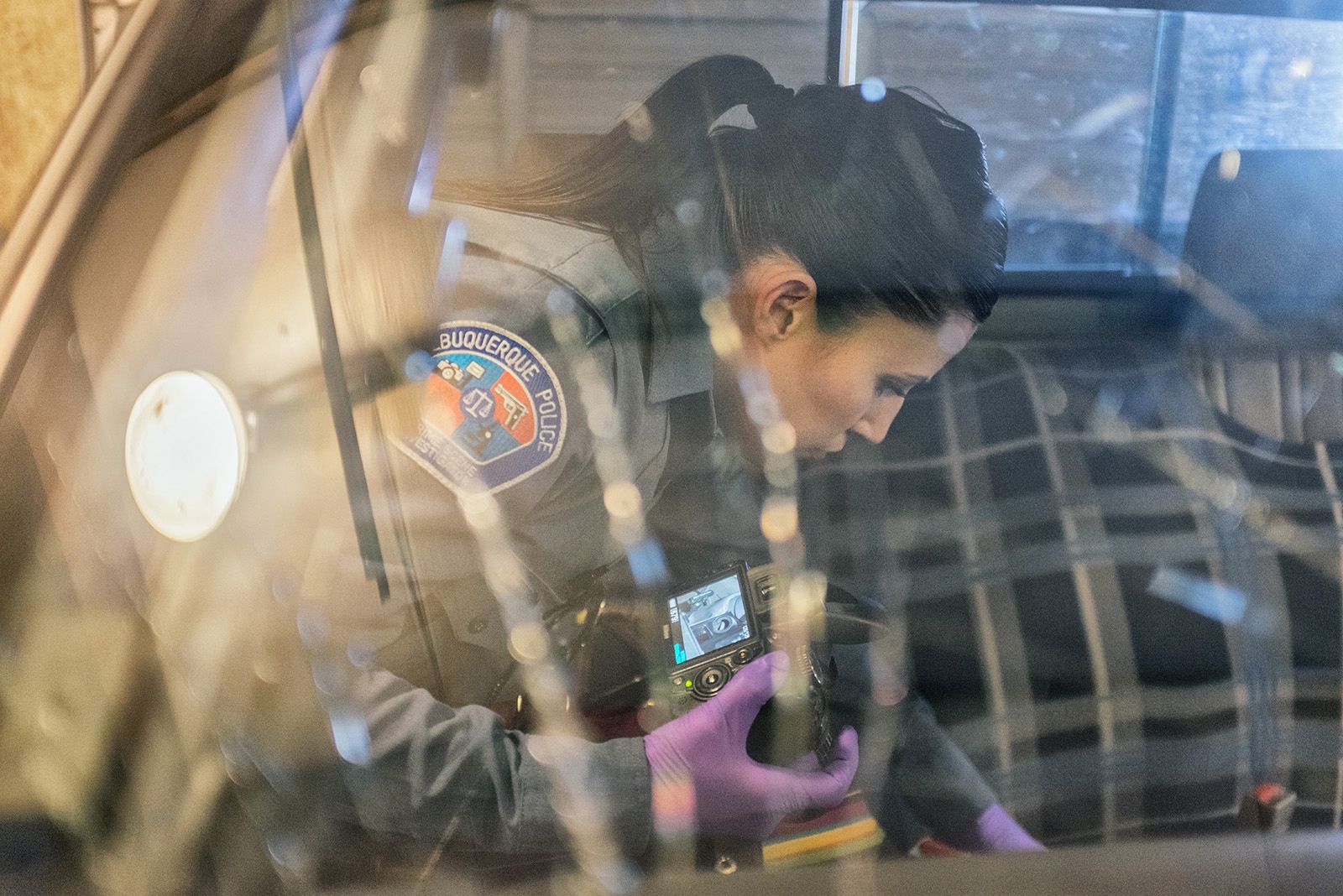
Megan Maestas examines the cab area of a stolen pick-up truck where
BouKaram’s belongings were recovered after his RV was stolen in
Albuquerque.
“She wanted a place to live, and she didn’t harm me,” he said. He would
have dropped the charges against the two if he could’ve, but since it
was a rented RV, he had no choice.
BouKaram’s trip was rife with unexpected discoveries. The story of the
cedars of Lebanon, for one, took a strange turn in Lebanon, Oregon, when
he discovered the town’s proclaimed “cedar” was actually a juniper
tree. After doing some digging, BouKaram found that when the
representatives returned from their trip in 1955, the saplings were
quarantined and fumigated. Only one survived. The rest were secretly
replaced with junipers. The lone surviving cedar still stands in
Lebanon, Ohio, next to an abandoned railroad.
In another way, BouKaram’s trip was as much about his own history as his
country’s. “The Lebanon I grew up in is not a Lebanon I’m fond of
because of the war,” he said. “So going to all these places was me
searching and looking to see what a Lebanon would look like without a
war.” While he found poverty, drug addiction, and suffering in these
towns, he also developed a newfound faith in the characters he was once
warned about.
“It’s made me more optimistic to find out that so many of them are kind
people regardless of what their political beliefs are,” he said.
BouKaram is now back in Lebanon living in his old apartment. He hopes to
come back to America soon but has become a decidedly noncoastal elite.
His dream city now is Birmingham, Alabama — and not just for all the
friendly folks he met on the road.
“The price of real estate there! Oh, Jesus.”
To see more photos and read about BouKaram’s trip in his own words, visit his trip blog or follow him on Facebook, Twitter, or Instagram.
| 1. Lebanon, Oregon | Oct. 19, 2016 |
| 2. Lebanon Township, North Dakota | Oct. 30, 2016 |
| 3. Lebanon, South Dakota | Nov. 1, 2016 |
| 4. Lebanon, Nebraska | Nov. 6, 2016 |
| 5. Lebanon, Kansas | Nov. 9, 2016 |
| 6. Lebanon, Wisconsin (Dodge County) | Nov. 14, 2016 |
| 7. Lebanon, Wisconsin (Waupaca County) | Nov. 17, 2016 |
| 8. Lebanon Township, Michigan | Nov. 20, 2016 |
| 9. Lebanon, Maine | Nov. 26, 2016 |
| 10. Lebanon, New Hampshire | Nov. 29, 2016 |
| 11. New Lebanon, New York | Dec. 6, 2016 |
| 12. Mount Lebanon, New York | Dec. 8, 2016 |
| 13. Lebanon, Connecticut | Dec. 12, 2016 |
| 14. Lebanon, New Jersey | Dec. 21, 2016 |
| 15. Lebanon, Pennsylvania | Dec. 24, 2016 |
| 16. Lebanon, Kentucky | Jan. 1, 2017 |
| 17. Lebanon Junction, Kentucky | Jan. 4, 2017 |
| 18. Lebanon, Tennessee | Jan. 6, 2017 |
| 19. Lebanon, Virginia | Jan. 14, 2017 |
| 20. Lebanon, Ohio | Jan. 25, 2017 |
| 21. Lebanon, Indiana | Jan. 30, 2017 |
| 22. Lebanon, Illinois | Feb. 3, 2017 |
| 23. Lebanon, Missouri | Feb. 6, 2017 |
| 24. Lebanon, Oklahoma | Feb. 8, 2017 |



